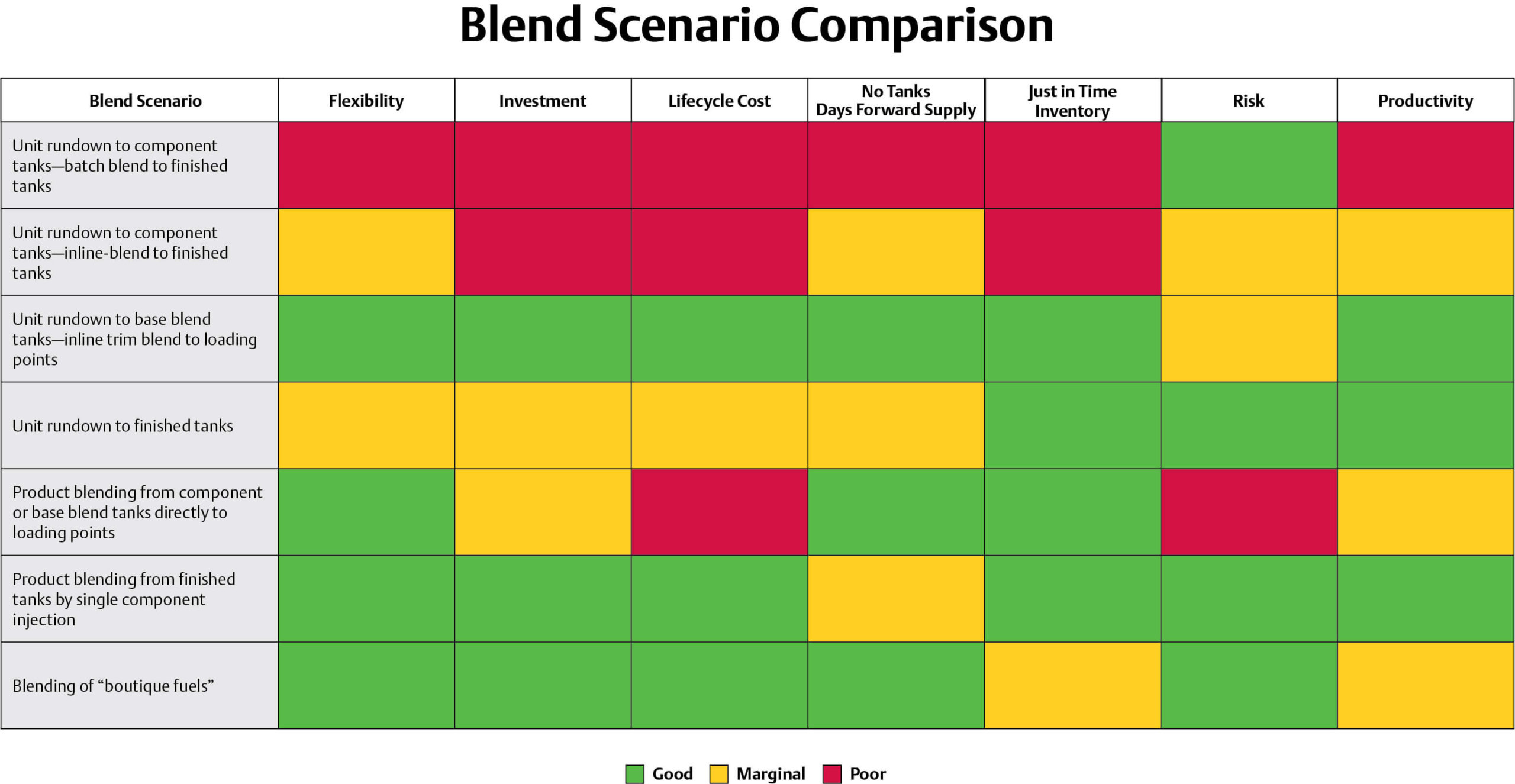Refiners are driven to produce fuels and other products profitably, while meeting ever-increasing regulatory requirements—all while operating safely, reliably, and efficiently. Fuel blending operations are a key part of the refining process to meet these challenges.
I connected with Emerson’s Marcelo Carugo about how refiners develop their blending strategies. Marcelo noted that compliance is paramount due to the high costs of non-compliance. Refiners will comply at all costs, even if they must do so in a cost-inefficient way.
Eliminating these inefficiencies, adding process units to comply with new regulations, or addressing other operational issues like excess inventory holds, quality giveaways, or excessive re-blends might require management to re-examine their refinery’s fuel blending strategy.
Marcelo noted that every refinery is different due to its available space to expand, current units and production assets, and the regulatory requirements in the location in which it operates. These differences affect which blend strategy will yield the best performance.
There are many blending scenarios to consider, each with its pros and cons. Performing a detailed technical and economic evaluation can ensure that the right structural and process improvements are made to the blending area, which directly impacts the profitability of the refinery.
Marcelo shared an example of a refiner who worked with the Emerson refining industry consulting team to make recommendations on gasoline blending improvements. First, the consultants worked with the refinery staff to understand the overall business strategy, assess the current state of the refinery, benchmark current performance, and understand the desired outcome. Marcelo explained that the assessment included examining tank capacities and utilization, process hydraulics, fuel grades, and product certification procedures.
Using the data from a one-month schedule of blends shared by the customer – as well as the assessment of their existing assets – the consultants evaluated each of the blend scenarios to help the customer understand the benefits of different blend strategies, cost estimates to implement changes, and the return on investment of the different approaches.
For instance, as the experts evaluated each scenario they calculated the required tank utilization and component availability needed to meet demand. The process hydraulics were also evaluated to ensure that for the proposed blend strategy the customer would be able to maintain sufficient pressure to ensure adequate flow.
Based on the scenario analysis, the customer decided on a modernization plan that included upgrading the gasoline blending system to enable in-line blending directly to tanker ships, which would allow for more flexible tankage assignments, reduced inventories, reduced quality giveaway, and fewer re-blends.
To achieve these improvements, the plan called for adapting existing piping and pumps, adding new pumps sized for the desired hydraulics, improving blend scheduling tools, and increasing blend model certainty. The team also recommended expanding the number of process measurements on unit rundowns, including accurate flow measurements, and employing online analytical instrumentation.
Finally, because adoption by personnel is critical to the success of any technology migration, Emerson experts worked with the customer to create a plan for institutionalizing and implementing the recommendations, including working with the operators to facilitate adoption of all process changes.
To assess and improve your fuel blending operations, visit Emerson’s fuel blending website and ask to connect with one of our refining industry experts. You can also connect and interact with other refining and automation professionals in the Refining group in the Emerson Exchange 365 community.






